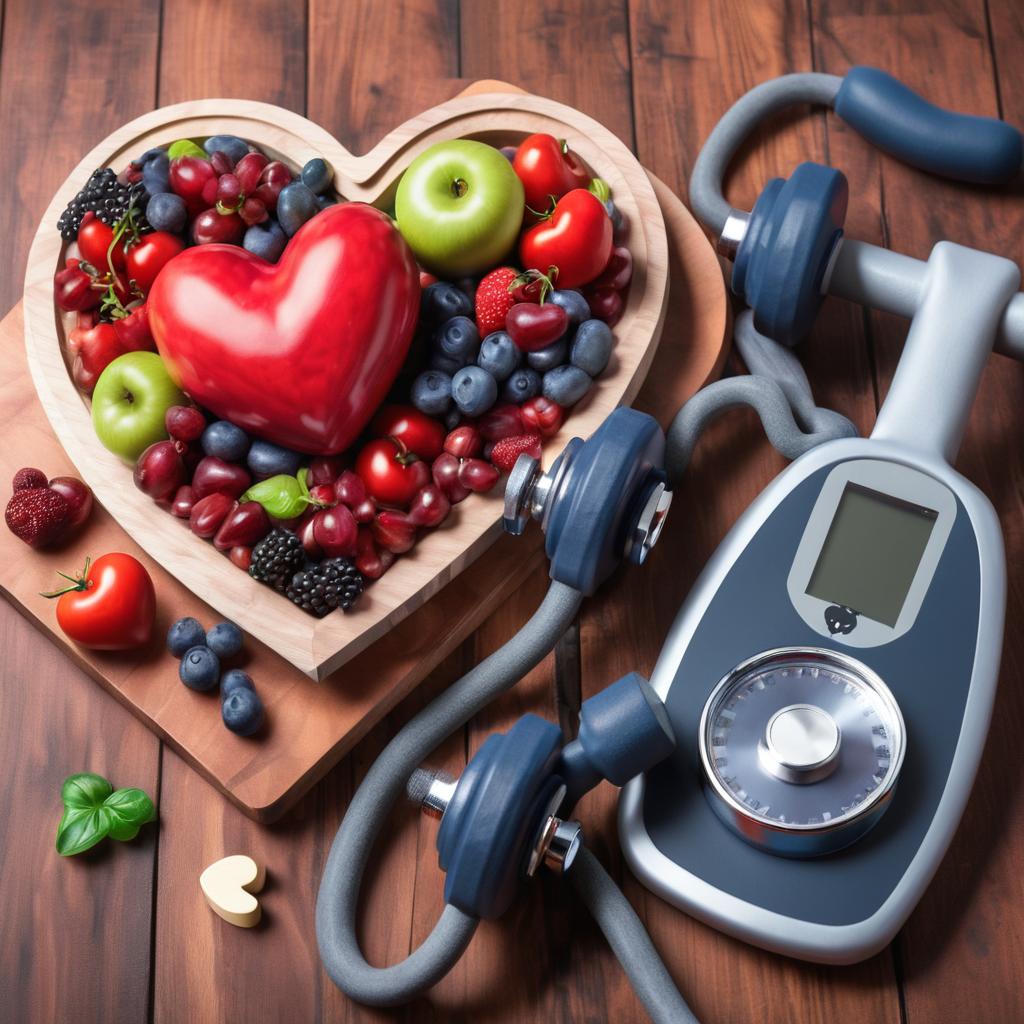Understanding Heart Health: The Impact of Nutrition and Exercise

In our bustling modern lives, convenience often takes precedence over health, and this can have serious repercussions on our cardiovascular well-being. The significance of balanced nutrition and responsible exercise cannot be overstated, especially when it comes to safeguarding our hearts from potential risks like cardiac arrest. Dr. Ripen Gupta, a Senior Director of Cardiology at Max Smart Super Speciality Hospital in New Delhi, delves into the critical connection between unmeasured nutrition, over-exertion, and heart health.
Dr. Gupta points out that a diet high in processed foods, saturated fats, and sugars significantly raises the risk of obesity, high cholesterol, and hypertension, all of which are key contributors to cardiovascular diseases, including cardiac arrest. In contrast, a Mediterranean diet rich in fruits, vegetables, lean proteins, and healthy fats like those found in fish and chicken, can significantly lower these risks .
Moreover, inadequate intake of essential nutrients like vitamins, minerals, and fiber weakens the heart muscle, making it more vulnerable to sudden cardiac events. Dr. Gupta highlights the danger of over-exertion, particularly when combined with poor nutrition. Intense physical activities without adequate training or recovery can strain the heart, potentially leading to life-threatening conditions like myocardial infarction or arrhythmias .
To counteract these risks, Dr. Gupta emphasizes a holistic approach to health. This involves adopting a balanced diet rich in fruits, vegetables, whole grains, and lean proteins, while minimizing processed and sugary foods. Regular, moderate exercise, coupled with sufficient rest, strengthens the heart and improves circulation, reducing the likelihood of cardiac events .
Dr. SS Sharma, Mentor and Chief Clinical Advisor at Heartnet India, further underscores the importance of lifestyle choices in heart health. Factors like obesity, stress-induced overexertion, and unhealthy dietary habits pose significant threats. A diet low in sodium and saturated fats helps mitigate heart disease risks, while excessive consumption of fried foods, processed meats, and sugary drinks heightens the likelihood of sudden cardiac arrest .
Maintaining a balanced diet, proper blood pressure, cholesterol levels, and regular exercise are crucial for both mental and physical well-being. Dr. Sharma emphasizes the benefits of plant-based foods, whole grains, low-fat dairy, nuts, and seeds in preventing heart diseases .
Also Read: Spiritual and Nutritional Benefits of Navratri Food
Ultimately, adopting a healthy lifestyle and prioritizing physical health are imperative for safeguarding heart health. Consulting with healthcare professionals for personalized advice on diet and exercise tailored to individual needs plays a pivotal role in reducing the risk of cardiovascular diseases .
Q&A
1. How does nutrition impact heart health?
Nutrition plays a crucial role in heart health. A diet high in processed foods, saturated fats, and sugars can lead to obesity, high cholesterol levels, and hypertension, increasing the risk of cardiovascular diseases like heart attacks and strokes. On the other hand, a balanced diet rich in fruits, vegetables, whole grains, lean proteins, and healthy fats can strengthen the heart muscle and improve overall cardiovascular function.
2. What are some key components of a heart-healthy diet?
A heart-healthy diet should include:
- Plenty of fruits and vegetables
- Whole grains like brown rice, quinoa, and whole wheat
- Lean proteins such as fish, chicken, beans, and legumes
- Healthy fats from sources like nuts, seeds, and olive oil
- Limiting intake of processed foods, sugary drinks, and foods high in saturated fats and sodium
3. How does over-exertion affect heart health?
Over-exertion, especially when combined with poor nutrition, can put excessive stress on the heart. Engaging in intense physical activities without proper training or rest can lead to conditions like myocardial infarction (heart attack) or arrhythmias (irregular heartbeats). It’s important to gradually increase physical activity levels and allow adequate recovery time to minimize the risk of heart-related complications.
Also Read: Benefits of Displaying Food Information for Restaurants
4. What are some tips to protect the heart during exercise?
To protect your heart during exercise:
- Start with moderate-intensity activities and gradually increase intensity over time.
- Stay hydrated and take breaks when needed.
- Incorporate a mix of aerobic (e.g., brisk walking, cycling) and strength-training exercises into your routine.
- Listen to your body and avoid pushing yourself beyond your limits.
- Consult a healthcare professional before starting a new exercise regimen, especially if you have existing heart conditions.
5. How can lifestyle choices impact heart health?
Unhealthy lifestyle choices like smoking, excessive alcohol consumption, and poor dietary habits can significantly increase the risk of heart diseases. Making positive lifestyle changes such as quitting smoking, reducing alcohol intake, eating a balanced diet, maintaining a healthy weight, and staying physically active can greatly improve heart health and reduce the likelihood of cardiovascular events like cardiac arrest.









